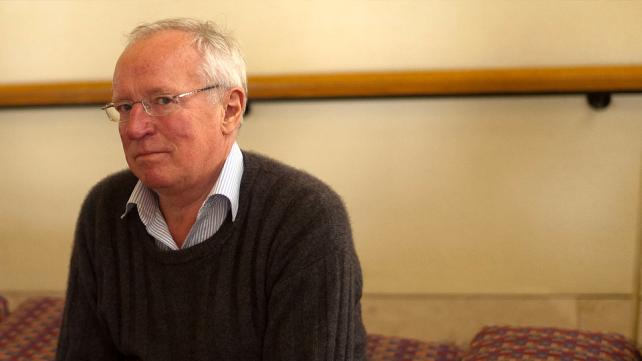
Behind every front page news story and sound byte is the person who is the focus of the drama, the newsmaker.
These are the people whose stories, achievements, failures and successes fascinate and enthrall audiences.
Muslims and Muslim issues grabbed headlines this year, more than ever, thanks to the newsmakers listed below. These are our picks for the top newsmakers of 2000.
1. Imam Jamil Al-Amin
One of the most prominent Muslim leaders in North America is charged with killing an Atlanta sheriff's deputy and wounding another on the day of Eid-ul-Adha. He was the chairperson of the Islamic Shura Council of North America from 1996 to 1997.
On March 16, 2000 two sheriff deputies attempted to serve Imam Jamil a warrant that was reportedly issued months earlier. One deputy was killed, the other injured; Imam Jamil Al-Amin denies the charges that he shot anyone. He left for the state of Alabama to save his life where he was arrested on March 20th.
Imam Jamil, formerly known as H. Rap Brown, had been on the FBI's ten most wanted list during his pre-Islamic past as a member of the Black Panther party. He accepted Islam in prison and is widely praised for his community services and anti-drug and anti-crime efforts in Atlanta.
2. Sami Al-Arian: The Secret Evidence Fighter
There are about 29 Arabs and Muslims who are held under the provisions of the law of secret evidence in America. At the end of the year, two of these people, Anwar Haddam and Mazen Al-Najjar, were released.
The first, a former Algerian parliamentary leader and the second a former Arabic professor, emerged from prison's shadows in December. Sami Al-Arian, Al-Najjar's brother-in-law, who spearheaded the campaign to free him, emerged as the most sophisticated and relentless leader of the campaign against the inhuman, unIslamic, and unAmerican law of secret evidence. Al-Najjar's defense attorney David Cole is a Georgetown University law professor who also deserves mention: he is defending 12 other cases involving secret evidence.
3. David Bonior: a voice of justice in Congress
David bonior, the House Democratic Whip from Michigan was the most outspoken opponent of the use of secret evidence in US Congress. He's called it a "national embarrassment" and even demanded the resignation of US Attorney General Janet Reno because of it. But Bonior didn't just talk the talk, he also walked the walk by introducing the Secret Evidence Repeal Act. Unfortunately the other Congressional leader against the Jihad against the secret evidence, Tom Campbell, Republican representative of California, lost his bid for the Senate. While the secret evidence bill is still there, opposition to it picked up substaintial support when President-elect George W. Bush opposed it during a presidential debate prompting vice President Al Gore to issue his opposition later.
4. Kosova Task Force, USA: United We Succeed
Kosova Task Force, USA was considered by the Associated Press as the nerve center for the support of Kosova in the US. KTF's relentless efforts in support of Kosova bore fruit as America led NATO in forcing Serbia through air bombardment to withdraw from Kosova.
KTF proved what Muslims could do when they mobilized Muslims in a united and organized fashion. Kosova Task Force, USA is an alliance of 15 national organizations of Muslims coordinated by Abdul Malik Mujahid on the model of Bosnia Task Force USA. Nowadays, the Kosova Task Force, USA is helping Kosova's Muslims rebuild their Masjids and community life. Kosva is free from Serb control but still not independent.
5. Kathy Kelly,: The Queen Voice in the Wilderness
This activist is the one of the leaders of the five-year-old campaign to end US-led sanctions on Iraq. Thousands of Iraqis have died due to the economic sanctions since 1991. These were imposed on the country by the UN Security Council and have killed more civilians than any political action since the Holocaust.
6. The AMPCC: leading Muslims in politics
The American Muslim Political Coordinating Council Political Action Committee (AMPCC-PAC)'s endorsement of George W. Bush shortly before the November 7 US presidential elections made history.
It was the first time a group of Muslim organizations had ever officially encouraged Muslims to vote for a specific candidate as a bloc in the USA. Citing his outreach to the Muslim community during his campaign, as well as his opposition to the law of secret evidence, the AMPCC encouraged Muslims to throw their support behind the former governor of Texas who later won the hotly contested election. Dr. Agha Saeed is the coordinator of this PAC.
7. Al-Awda: The Right to Return
Before Intifada II began in Palestine last September, this US-based grassroots organization gave prominence to the term "Right to Return". Established in April 2000, the aim of Al-Awda is to "educate the international community to fulfill its legal and moral obligations vis-a-vis Palestinian refugees based on The Universal Declaration of Human Rights, international law and implementation of United Nations Resolutions upholding the inalienable right of Palestinians to return to their homeland and to restitution of all their confiscated and destroyed property".
8. Aminah Assilmi: Jihad for the Eid Stamp
The stalwart American Muslimah has campaigned for Islamic awareness in America with speeches and writings in the past. Last year, she did it with a postal stamp.
On November 13, the US Postal Service debuted a stamp recognizing the Islamic festival of Eid. It will officially be released to the public this coming October. Although many organizations are claiming credit for this victory, it was Aminah who, upon the suggestion of a Muslim child, started campaigning for it four years ago.
9. Robert Fisk: The best reporter on the Middle East
The Middle East correspondent for the daily The Independent of London displayed not only his journalistic skills during Intifada II which began in late September in Jerusalem. His was one of the few fair voices emerging from a mostly pro-Israel Western media. Perhaps his experience covering the Middle East for over two decades and his refusal to swallow cliches and stereotypes are what set his reporting apart.
10. Mahmoud Abdur-Rauf: Back in the ring
This basketball star was the center of controversy a few years ago when the refused to stand up for the American national anthem. He retired from the court in 1999 and decided to take a very different route by working to build a Masjid in his hometown of Gulfport, Miss. He later became the Masjid's Imam. But in November, he decided to return to a life of basketball and is now back on the courts with the Vancouver Grizzlies.
"Robert Fisk at Al Jazeera Forum 2010" by Mohamed Nanabhay - http://www.flickr.com/photos/mohamedn/4632983122/. Licensed under Creative Commons Attribution 2.0 via Wikimedia Commons - http://commons.wikimedia.org/wiki/File:Robert_Fisk_at_Al_Jazeera_Forum_2010.jpg#mediaviewer/File:Robert_Fisk_at_Al_Jazeera_Forum_2010.jpg

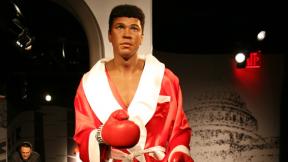
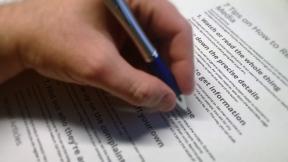
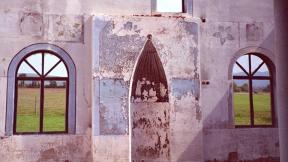

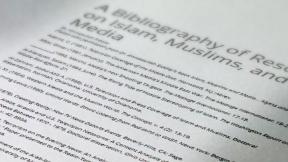


Add new comment